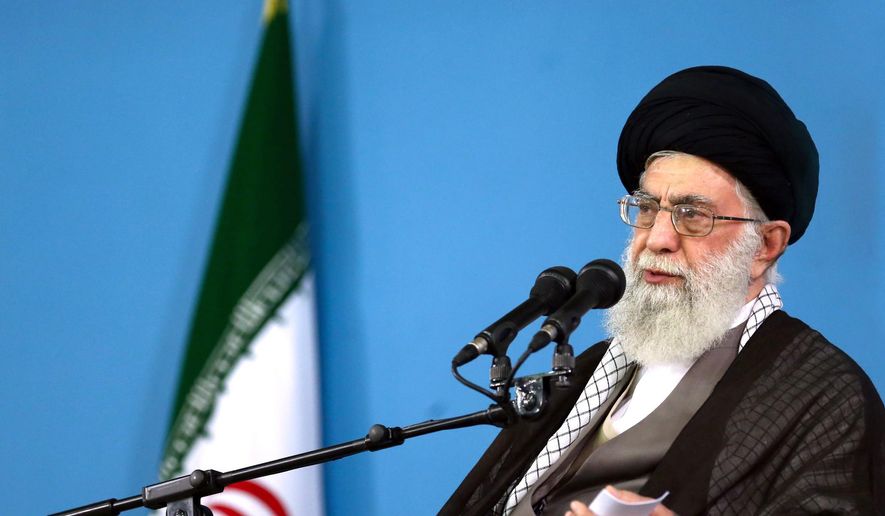Supreme Leader Ayatollah Ali Khamenei signed off Wednesday on the nuclear agreement between Iran and six world powers, but not without raising his concerns about the multinational pact that will lift long-standing sanctions in exchange for adjustments to the Iranian atomic research program.
In a letter to President Hassan Rouhani published by Iranian media, the nation’s supreme leader warned that the arrangement brokered largely by the White House “bears ambiguities, structural weaknesses and several issues that can lead to major losses for the present and future of the country without precise and minute-by-minute watch.”
Per the agreement, Iran will significantly roll back its nuclear program in exchange for the removal of internationals sanctions that have crippled the country’s economy.
But the supreme leader told Mr. Rouhani that Iran should be wary of any attempts by the U.S. or its allies to leave sanctions in place or impose new restrictions in the event that Tehran’s actions fall short of Washington’s expectations.
“You have obviously known that the U.S. government has no other approach except for animosity and disturbance regarding the nuclear issue or any other issue,” he wrote to the Iranian president.
Iran’s Ministry of Foreign Affairs reiterated the supreme leader’s stance in a statement acknowledging his concerns that America or its allies may seek further penalties regardless of whether or not they’re laid out in the Joint Comprehensive Plan of Action, the deal’s official name, such as sanctions that may be imposed as a result of human rights policies or other matters outside the realm of nuclear research.
“The Supreme Leader noted that any remarks by the other side that says the structure of the sanctions will remain unchanged or imposition of any sanctions on Iran at any level under any pretext would translate into the violation of the JCPOA,” the ministry said.
Iran’s parliament, national security body and Guardian Council had previously approved the nuke deal, but Khamenei’s go-ahead is required before most matters of state are finalized.
• Andrew Blake can be reached at ablake@washingtontimes.com.




Please read our comment policy before commenting.